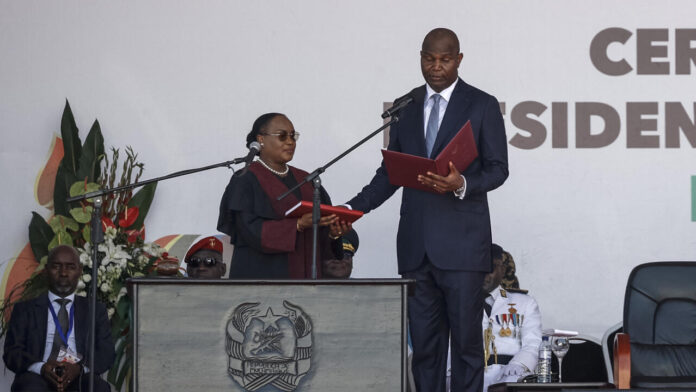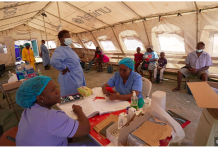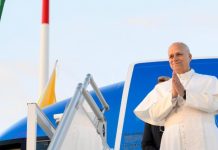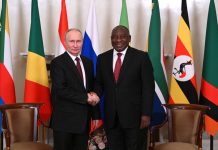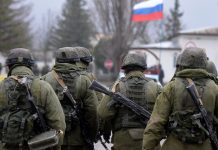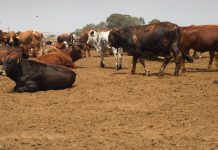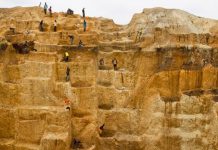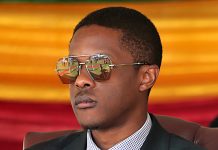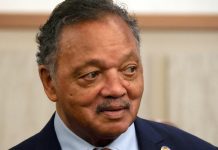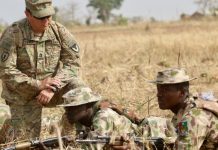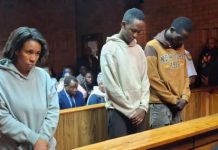
Mozambique’s new president, Daniel Chapo, was inaugurated in a subdued ceremony in Maputo, overshadowed by an opposition-led boycott and a national strike. The event followed contentious elections that Chapo’s opponents claim were riddled with irregularities.
Most businesses in Maputo closed their doors, and the streets were eerily quiet as Venâncio Mondlane, the defeated presidential candidate, called for protests against what he described as a stolen election.
Chapo’s Pledge to Heal a Divided Nation
In his inaugural speech, Chapo, 47, promised to “devote all my energies” to uniting the nation and upholding human rights.
“Mozambique cannot remain a hostage to corruption, nepotism, and incompetence,” he told the 2,500 guests at the heavily guarded ceremony. “Together, we will restore patriotism and pride in being Mozambican.”
However, the ceremony was marred by clashes outside Independence Square, where police dispersed crowds with gunfire. Among those gathered were both Mondlane supporters and Chapo sympathizers, frustrated at being denied entry to witness the event.
Post-Election Violence and Public Discontent
Chapo takes office in a volatile climate. Since the October elections, over 300 people have reportedly been killed in clashes with security forces, according to civil society groups. Mondlane, who garnered 24% of the vote as an independent candidate, has rejected the election results, accusing the ruling Frelimo party of orchestrating widespread fraud.
Chapo, who won with 65% of the vote, extends Frelimo’s nearly five-decade rule. Yet his legitimacy is questioned by many Mozambicans, including opposition parties Renamo and MDM, both of which boycotted his inauguration.
Civil society activist Mirna Chitsungo, who has worked closely with Chapo, voiced her concerns:
“While I admire his willingness to act and openness to dialogue, he is assuming an illegitimate power rooted in a fraudulent process. The people do not accept him.”
Challenges Await Chapo
Analysts warn that Chapo faces formidable obstacles, including rebuilding the economy, combating corruption, and addressing systemic inequality. Investigative journalist Luis Nhanchote noted that Mozambique’s governance is plagued by cartel-like structures controlling industries such as medicine, sugar, and even kidnappings.
“Chapo must dismantle these networks and build a team of experts to support him,” Nhanchote said. “But first, he needs to calm the nation and restore peace.”
Rev. Anastacio Chembeze echoed this sentiment, emphasizing systemic reforms:
“Mozambique’s challenges cannot be solved by one person. Change must start within the system itself, addressing ethical failures and separating powers within the state.”
A New Generation of Leadership
Born on January 6, 1977, in war-torn Inhaminga, Sofala province, Chapo is the first Mozambican president without ties to the country’s independence struggle. His education, including a law degree and a master’s in development management, underpins his reputation as a thoughtful and pragmatic leader.
Described as humble and hardworking, Chapo previously served as a legal notary, university lecturer, provincial governor, and Frelimo general secretary.
Chapo’s agenda prioritizes national reconciliation, electoral reform, job creation, and decentralizing power. However, critics remain skeptical of his ability to succeed without broader public support.
Restoring Confidence
Observers say engaging with Mondlane, who has become a symbol of resistance, will be critical. Mondlane continues to contest the election results and remains a vocal critic of the government, accusing it of heavy-handed tactics.
Analysts have also urged Chapo to overhaul key institutions, including replacing Police Chief Bernadino Rafael, accused of leading violent crackdowns, and appointing an attorney general committed to upholding human rights.
Nhanchote concluded that Chapo’s presidency represents an opportunity for transformation:
“If he wants to make a real mark on history, Chapo must challenge the entrenched elite and rebuild Mozambique. Otherwise, his tenure may be short-lived.”


